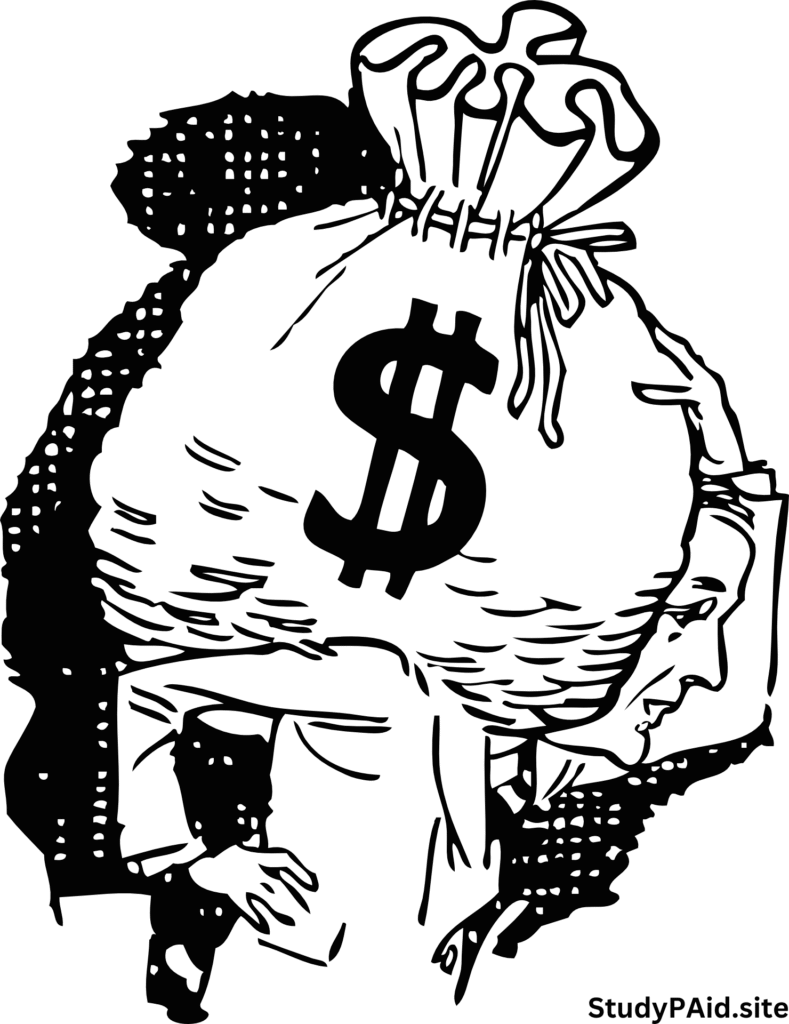“Will my taxes be deducted by student loans in 2025?” is a question that many people are asking. Student loan debt affects millions of Americans, and many of them are worried that their tax returns will be used to pay off their debt. If you want to be financially prepared for 2025 and beyond, you need to know how the process works for collecting student loan debt, especially when it comes to your taxes.
In this article, you will find all the information you need on the possibility of tax deductions for student loans in 2025, the process of tax refund garnishment, and ways to protect your hard-earned money.
In 2025, Will My Student Loans Cover My Taxes?
The short answer is yes, there are several situations in which student loans may be claimed as a tax deduction in 2025. Federal student loans that have fallen into default are the primary focus here.
The Withholding of Taxes by Student Loans: What Does It Mean?
The government may take your tax return as collateral to repay any outstanding balance on your federal student loans if you have defaulted on your payments. This means that the Internal Revenue Service (IRS) may decide to keep some or all of your refund instead of releasing it to you in order to pay down your outstanding student loans. The official term for this process is the Treasury Offset Program (TOP).
Could You Be Subject to Tax Withholding for Your Student Loans?
-
Collateralized debtors of federal student loans: The usual time for payments to go into default is after 270 days, or about nine months.
-
Outstanding sums owed by borrowers of federal student loans: It is possible to begin collection activities even if you are not in full default.
-
Individuals who have not yet registered for debt payback or rehabilitation programs: By working together with your loan servicer, you may usually avoid having your tax returns garnished.
What About Private Student Loans?
There is a prohibition on commercial lenders quickly seizing your federal tax return. Obtaining a wage garnishment order or exploring other means of recovering funds often requires going through the legal system. As a result, if you owe money on private student loans, your wages shouldn’t be garnished to pay your taxes in 2025.
Could You Please Explain How the Treasury Offset Program Works?
In order to collect past-due payments from federal agencies, including those for defaulted student loans, the government employs the Treasury Offset Program, which involves intercepting payments such as:
-
Reimbursement of tax obligations
-
Paid time off via Social Security
-
Boosted government grants
If you owe money on federal student loans and have gone into default, the U.S. Department of Education may request that the Treasury withhold your tax return so that they can pay off the debt.
Can I Retain a Certain Amount from My Tax Return?
Garnishment amounts are determined by your remaining loan principal plus any offsets applied to other debts. A portion of your refund will be deducted by the government to cover interest and collection fees, on top of the total amount due.
Will a Notification Be Issued?
Before your tax refund is withheld, you should get a notice explaining the offset and how much of your return will be applied to your student loans.
How Will Student Loans and Tax Garnishment Evolve in the Year 2025?
As of the year 2025, there have been no major legislative changes that would limit the government’s ability to garnish taxpayers’ income in order to repay federal student loans that have fallen into default. However, staying up-to-date is recommended because:
-
Legislation and assistance proposals may be proposed by Congress.
-
Changes to the programs that erase student loans can affect your eligibility.
-
The policy regarding the suspension or modification of payments may have an effect on the state of default.
Advice from an expert: Check official sources, such IRS updates or the US Department of Education’s website, from time to time in 2025 to stay abreast of any changes.
What Are My Options for Avoiding Student Loan Taxes in 2025?
If you are worried about having your refund garnished because of outstanding student loans, here are several steps you may take:
-
Keep your student loan payments current.
By consistently paying your bills on time, you may lessen the likelihood of default and garnishment. If you are experiencing difficulties paying your loan payments, you should contact your loan servicer to explore options for deferment, forbearance, or income-driven repayment plans. -
Restore your obligations to good standing via loan rehabilitation or consolidation.
If your payments are already past due, this may stop garnishment procedures and remove the default from your credit report. -
Fill out a repayment plan or forgiveness program application.
Reduce your monthly payments to a more affordable level using programs like Income-Driven Repayment (IDR) plans, which may help you avoid default. Check into debt forgiveness programs; they may be able to reduce or eliminate your debt if you’ve met the requirements. -
Check Your Debt Status Often.
Visit the Federal Student Aid website (studentaid.gov) to verify your loan status and make sure you aren’t unknowingly in default.
What If They Have Already Paid My Taxes? Are They Recoverable?
If student loan payments have already been deducted from your 2025 tax return, you may not have many options for recovery:
-
You would not be able to get your money back from the garnishment if the offset was legal.
-
Contact the U.S. Department of Education or the Treasury Offset Program to protest the garnishment if you believe it was a mistake.
-
If you have already made arrangements or are already paying your loan, you may have a chance to negotiate with the servicer.
Important Tax and Student Loan Concerns for 2025
-
Does an income-driven repayment plan take taxes into account when calculating a student loan payback?
No, usually. If you stick to your repayment plan, you may usually keep your tax return garnishment at bay. But even with a plan, garnishment might still happen if you miss a payment. -
Can I use my tax return to pay down my student loans?
No. In addition to federal taxes, the Treasury Offset Program collects state debts, unpaid child support, and other federal liabilities. -
Does Filing My Taxes Exempt Me From Garnishment?
Payroll tax payments will not prevent garnishment if you are in delinquency. Your refund will be sent directly to the Treasury Offset Program by the IRS if an offset is being considered.
Final Thoughts on 2025 Tax and Student Loan Management
Under some circumstances, including being in default on your federal loans, you could be eligible to claim student loan debt as an itemized deduction in 2025. The best way to avoid this is to keep up with your loan payments and be very careful when dealing with your loan servicer.
For those who are struggling to repay their school loans:
-
You should look at income-based repayment alternatives.
-
Think about refinancing or consolidating your debt.
-
If the government announces a new program or assistance effort, be sure to stay informed.
-
If you need help navigating your student loan debt, talk to a financial expert.
Remember that the money you get back from your taxes is quite precious. You might perhaps save money and prevent problems in the future if you secure it now
